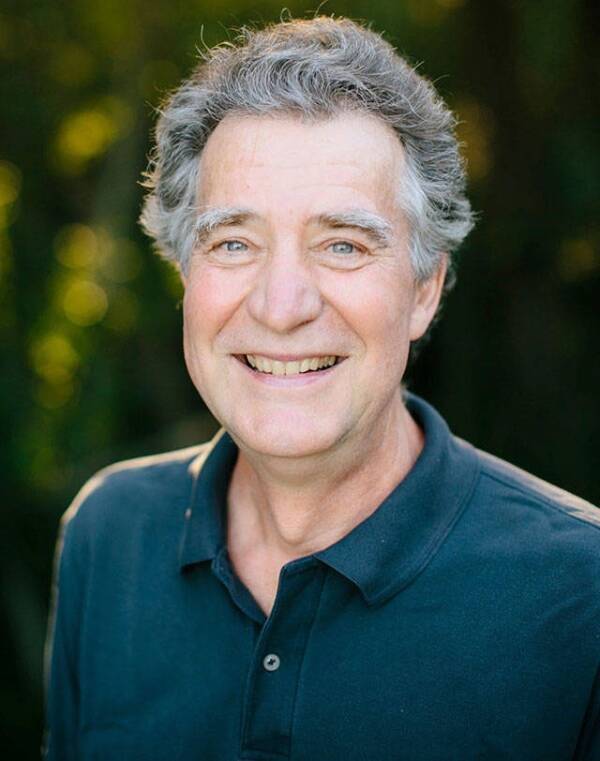Editor’s note: Green Briefs is a regular series of commentaries by eco-leaders on Vashon, presented in The Beachcomber in partnership with The Whole Vashon Project.
In 2022, Vashon-Maury Island waste going to the Cedar Hills Landfill averaged nearly five pounds per person per day, up from nearly four pounds before COVID in 2019.
King County is running out of space for this growing waste, which emits lots of greenhouse gases. Vashon-Maury residents, on average, generate about twice that of the average King County resident. Lots of this waste is single-use plastics and packaging that cannot be recycled.
According to the Wasteberg concept by the Institute for Local Self-Reliance, for every 1 ton of waste we generate, 71 tons of industrial waste are generated before the product even gets to us! These magnitudes astound me, and I hope you will agree: it is time we rethink the way we consume. Lots of this waste is in packaging and it is possible to reduce this with some simple changes to our routine behavior.
One such behavior, refilling, is gaining traction as a way to reduce our material footprints and planetary impact. Although the Zero Waste Hierarchy (Rethink/Redesign-Reduce-Reuse-Recycle/Compost) does not specifically call out Refill, it is actually captured within the top three R’s.
We are making progress here on Vashon-Maury Island with all the growing bulk sections at Vashon Thriftway, IGA, Minglement, and elsewhere. The concept even motivated islander Tracy Chait to form a new business centered around it: Refill Vashon.
You may have read about Refill Vashon in editor Alex Bruell’s article in the Dec. 14, 2023 edition of The Beachcomber (“New tenants create hub for women, artists at Fuller Store”). I recently had the opportunity to visit the Refill Vashon shop at the Fuller Building, in Center, and learn Tracy’s story.
Tracy started out in the fiber arts world showcasing local fiber. She was involved with the Vashon Fiber Shed screening of the film “True Cost” in 2016, and got the bug to start a closed-loop business on the Island. This vision took shape after she visited farmers markets in Costa Rica and elsewhere with refill programs in 2019, and finally became a reality with a booth at our Farmer’s Market last April.
She then moved into a 100-square-foot room at the Fuller store in September of 2023. Due to the positive community response and growth with more than 40 regular customers, she will be moving to a much larger space in the coming months — the former licensing office behind Swiftwater Gallery. Tracy also plans to return to the Farmers Market this coming season.
So how does Refill Vashon work, you ask? Tracy currently focuses on making and selling environmentally friendly, ethically sourced, green, non-food items without wasteful or plastic packaging, including homemade concoctions using lots of locally grown ingredients and sustainable commercial items.
You can bring your own containers to get them filled with a variety of liquid and solid soaps, lotions, balms, toothpaste, cleaning powders, vinegars, and related materials. Tracy purchases liquid items in bulk (returnable 30–50-gallon barrels stored in her garage) and dispenses them to customers in their reusable containers from smaller 1-2-gallon jugs that fit better in her shop than the barrels.
Refill Vashon also carries a variety of household non-plastic items, including brushes, reusable (cloth) paper towels, and many others. Tracy stocks more than 30 refillable items from environmentally responsible suppliers.
What motivates Tracy to do this? She started out wanting more environmental accountability for herself and environmentally responsible options for her family. As the mother of three kids, a former high school teacher and someone active in the school district’s FamilyLink program, she took her kids on a field trip to Cedar Grove Compost, followed by a homeschool project weighing and classifying their garbage.
When COVID hit, she did not feel good about the sheer volume of stuff people were ordering online, and she wanted to provide a local resource to minimize all the packaging.
What criteria does she use for her product line? They must be durable goods that last, made of sustainable materials, more concentrated (with no fillers), refillable with minimal to no packaging, do not contain petroleum products (including paraffins, plastics, etc.), locally sourced and handmade (if possible), and containing forest certified wood, to list a few of the highlights.
And why should we follow a Zero Waste approach? For many reasons. The top two on my list: to conserve resources and heal the earth for future generations.
It’s ultimately down to our behavior: Our choices, and, related, government policy — who we choose to lead us in enacting environmentally sound legislation and policy. Living a perfectly zero-waste life is challenging or not possible for many of us. It is, however, possible to take small steps along the path toward sustainability, and refilling really works.
Will you join me in refilling as much as possible to reduce waste and help the planet?
Steve Bergman is a geologist, Zero Waste Vashon board member and Whole Vashon Project advisor.
This article has been corrected. A previous version inaccurately cited the creator of the “Wasteberg” concept and misidentified the local store Minglement.



